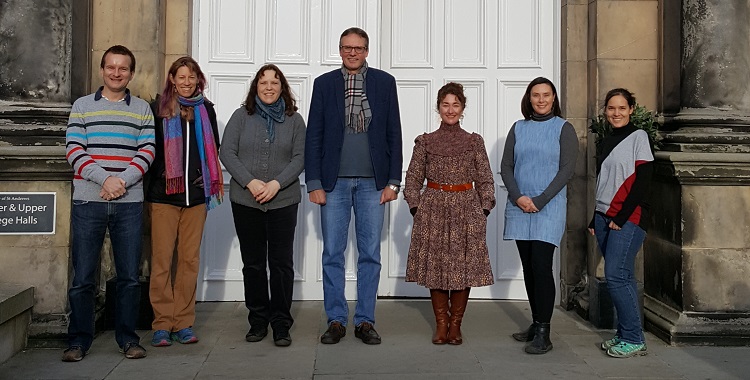Connecting Generations
The University of St Andrews is to share in a major £8.26m funding award for a joint initiative which will study inequality in society.
The Connecting Generations Centre, which will be led by Professor Jane Falkingham at the University of Southampton and includes the University of St Andrews, will explore how issues such as living standards, jobs and pay, housing costs, taxes and benefits, work-life balance, and caring responsibilities are affected by population and generational changes.
Of the Centre’s £8.26m award from the Economic and Social Research Council (ESRC) announced this week, around £1.76m will come to the Centre’s base at the University of St Andrews which will be run by Professor Hill Kulu of the School of Geography and Sustainable Development.
The Connecting Generations partnership brings together experts from the University of Southampton, University of St Andrews, University of Stirling, University of Oxford and the Resolution Foundation, as well as the Office for National Statistics and National Records of Scotland.
The Centre will study inequality in opportunities and experiences with the aim of improving the lives of individuals, families and communities – now and in the future – by examining the impacts of gender, age, ethnicity, socio-economic background, education and geographical region.

Brexit and the Covid-19 pandemic, the researchers believe, have made the Centre’s work of understand existing inequalities, and foreseeing emerging inequalities, even more urgent.
The Centre will work to understand the different impacts of Covid-19 and Brexit within and across generations, such as how the ‘traditional’ stepping stones to adulthood have been affected by the pandemic.
Professor Hill Kulu, a Co-Director of the Connecting Generations Centre at the University of St Andrews, said: “We are delighted to have the opportunity to work with world-leading researchers from Southampton, Stirling, Oxford and the Resolution Foundation on the cutting-edge topic of population change and fairness between generations.”
The UK (and other high-income countries) have experienced significant demographic changes over the past decades:
- increased life expectancy has led to the simultaneous presence of multiple generations
- fluctuations in fertility have resulted in different-sized generations (for example, large cohorts of ‘baby boomers’ versus small cohorts of ‘millennials’)
- the spread of cohabitation, separation and re-partnering have increased the diversity of family forms and multiple roles people have in their lives
- heterogeneity of populations has further grown due to international migration and ethnic minority populations.
Professor Kulu added: “In this context it is critical to understand how different generations provide support to each other across the different stages of their lives and address existing inequalities and foresee those emerging between and within generations in our societies.”
Issued by the University of St Andrews Communications Office.